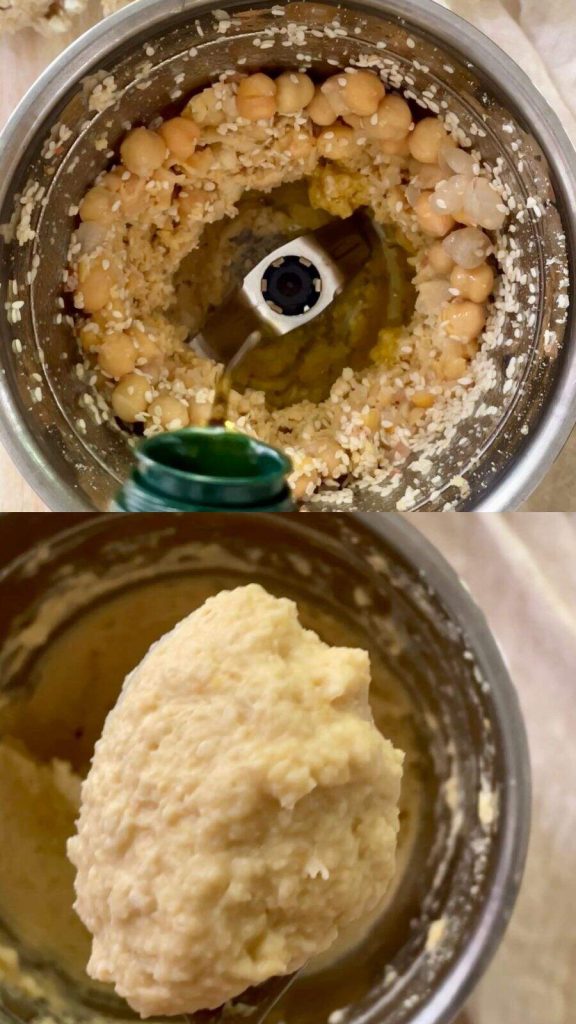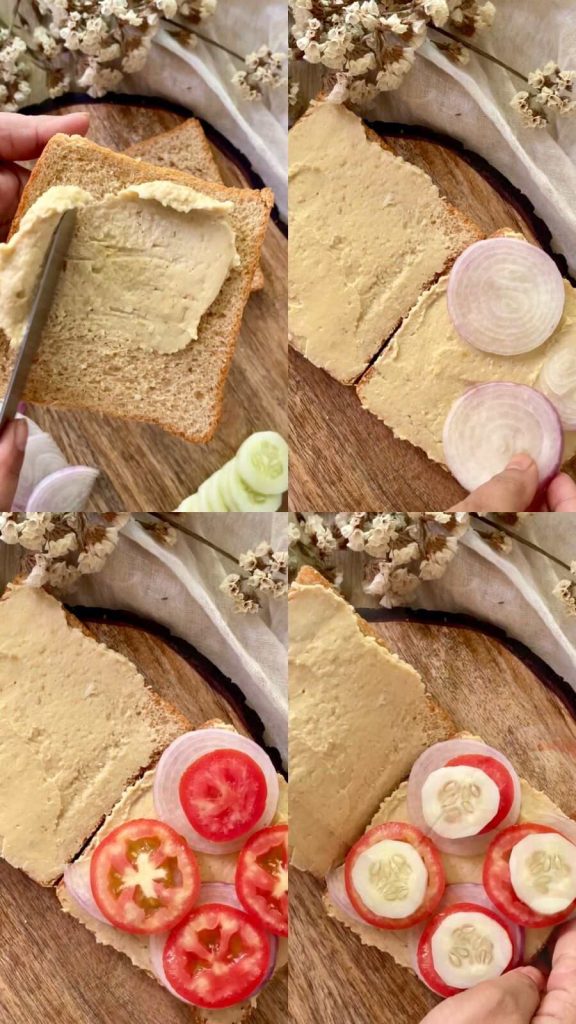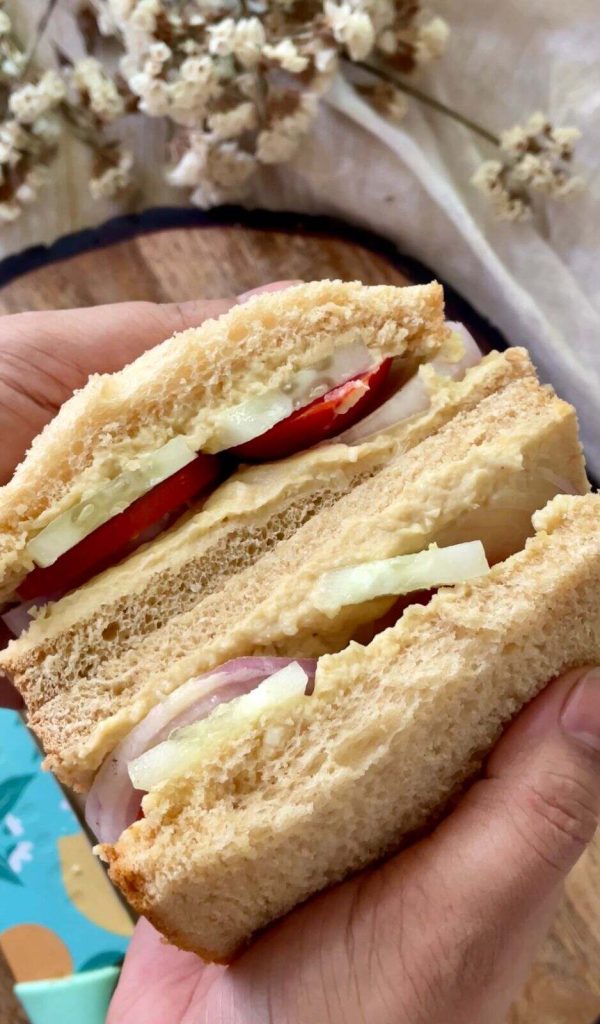
Hummus, a creamy and flavorsome spread originating from the Middle East, is created from a tantalizing mix of chickpeas, tahini, olive oil, garlic, and a splash of lemon juice. Celebrated as a versatile and nutritious superfood, hummus has secured its spot in diets worldwide. With its high fiber content, protein richness, and heart-healthy fats, hummus is a fantastic addition to any weight loss regimen. However, for it to truly shine, the spotlight also falls on what you pair with it. Let’s explore the smorgasbord of wholesome, weight-loss-friendly foods that pair perfectly with hummus in this comprehensive guide. 🍽️
Understanding the Nutritional Value of Hummus 🥊
Diving into the pairing options, it’s pivotal to comprehend why hummus is often touted as a weight loss-friendly food. One serving of hummus (which is about two tablespoons) delivers approximately 70 calories, along with 2 grams each of fiber and protein, and a decent amount of heart-healthy fats from tahini and olive oil. It’s the fiber and protein that works wonders in keeping you satiated, which means less room for that high-calorie, less healthy snack. 🥄
Is Hummus Good for Healthy Weight Loss?
Hummus is often included in many diet plans, and for good reason. It’s a delicious and versatile spread made from chickpeas, tahini (sesame seed paste), olive oil, lemon juice, and spices. But is hummus good for weight loss? Let’s delve into the details.
1. High in Protein and Fiber
Hummus is rich in protein and fiber, both of which can help you feel full and satisfied. Protein is known for its satiety-inducing properties, and fiber slows down digestion, helping you feel fuller for longer. This can help control your overall calorie intake, which is beneficial for weight loss.
2. Healthy Fats
Hummus contains healthy fats from olive oil and tahini. These fats are not only essential for your body’s function, but they also provide a sense of fullness. Plus, studies have shown that diets rich in monounsaturated fats, like those found in olive oil, may prevent body fat distribution around the belly by downregulating the expression of certain fat genes.
3. Low in Calories
Compared to other dips and spreads, hummus is relatively low in calories. Two tablespoons of hummus typically contain around 70 calories. However, it’s essential to watch your portion sizes because the calories can add up if you consume it in large amounts.
4. Versatile and Delicious
Hummus is a versatile food that can be used in various ways – as a spread on sandwiches, a dip for veggies, or a component in a protein-packed salad. This makes it easier to incorporate into your diet.
5. Packed with Nutrients
Hummus is packed with nutrients like iron, folate, phosphorus, and B vitamins, which are essential for your body’s metabolism and can help boost your energy levels.
However, it’s important to note that while hummus has many health benefits, it should be consumed as part of a balanced diet. Eating hummus alone won’t lead to weight loss. It’s also crucial to pay attention to what you’re pairing with hummus. Opt for healthy options like fresh vegetables instead of high-calorie chips or bread.
Combining Hummus and Vegetables for Weight Loss 🥕
- Bell Peppers🫑: All shades of bell peppers, be they red, yellow, or green, offer a delightful crunch that complements the smooth texture of hummus. Bell peppers are not only low-calorie and high-fiber snacks, but they’re also brimming with vitamins A, C, and E.
- Carrots🥕: Carrots dipped in hummus are an iconic duo. Low in calories and high in fiber, carrots promote a feeling of fullness. Moreover, they are chock-full of vitamin A and other nutrients, making them a great weight-loss snack.
- Cucumbers🥒: With high water content and low-calorie count, cucumbers when teamed with hummus become a refreshing, weight-loss-friendly snack.
- Cherry Tomatoes🍅: These tiny, juicy gems offer a flavor explosion when combined with hummus. Cherry tomatoes are low in calories and high in fiber and also pack a wide array of vitamins and minerals.
- Broccoli and Cauliflower🥦: These powerhouse veggies, either raw or lightly steamed, provide a satisfying crunch that plays well against the creaminess of hummus. Their high fiber content aids digestion and promotes satiety, making them ideal for weight loss.
Incorporating Hummus into Your Main Meals 🍽️
- Grilled Chicken Wrap with Hummus🍗: Spread a generous layer of hummus on a whole grain wrap, top it with succulent grilled chicken, and finish with a rainbow of vegetables. This wrap is a balanced meal replete with protein, fiber, and essential vitamins.
- Hummus Salad Dressing🥗: Puree hummus with some vinegar or lemon juice for a creamy, healthy salad dressing. This gives you a way to dodge traditional dressings that may contain heavy cream or mayonnaise, thereby saving on unnecessary calories.
- Hummus and Quinoa Stuffed Peppers🌶️: Stuff bell peppers with a hearty mix of quinoa and hummus, and bake to perfection. Quinoa, known for its high protein and fiber content, adds to the weight loss benefits of this mouthwatering meal.
- Whole Grain Pita and Hummus🥙: Whole grains are fiber-rich, helping to keep you full for longer periods. Pairing a whole-grain pita with hummus makes for an easy, nutritious meal or snack option.
- Hummus Topped Salmon🐟: Slather a piece of salmon with hummus before baking. Salmon is rich in protein and omega-3 fatty acids, which have been associated with weight loss and overall health benefits.
Smart Snacking with Hummus🥚
- Hummus and Hard-Boiled Eggs🥚: This combination is a protein powerhouse, helping to keep hunger at bay. Slice a hard-boiled egg and enjoy it with a scoop of hummus for a filling, nutritious snack.
- Hummus and Avocado on Toast🥑: Avocados are high in fiber and healthy fats, making them an ideal weight loss food. Spread some hummus on a slice of whole grain toast, top with avocado slices, and you have a delicious, nutritious snack or light meal.
Nutrition of Hummus
Hummus is made from simple, wholesome ingredients: chickpeas, tahini (sesame seed paste), olive oil, lemon juice, and spices. Each of these ingredients contributes to the overall nutritional value of hummus, making it a healthy addition to many diets. Let’s delve into the specifics of its nutritional content.
1. Is Hummus High in Fiber?
Yes, hummus is high in dietary fiber. The primary ingredient in hummus, chickpeas, are an excellent source of dietary fiber. A typical serving of hummus (about 2 tablespoons) contains around 2 grams of dietary fiber. Fiber is crucial for maintaining a healthy digestive system. It adds bulk to your diet, aiding in digestion and helping to prevent constipation. Moreover, dietary fiber can help control blood sugar levels, lower cholesterol levels, and aid in weight management by promoting feelings of fullness.
2. Is Hummus a Good Source of Protein?
Absolutely! Hummus is a good source of plant-based protein. The chickpeas in hummus contribute to its protein content. A typical serving of hummus provides about 2-3 grams of protein. While this may not seem like a lot, it can contribute to your daily protein intake, especially if you follow a vegetarian or vegan diet. Protein is an essential nutrient needed for muscle growth and repair, and it also plays a role in satiety, helping to keep you feeling full longer.
3. Fiber Content in Hummus
As mentioned earlier, hummus is a good source of dietary fiber. The fiber in hummus comes from chickpeas, which are high in both soluble and insoluble fiber. Soluble fiber can help lower glucose and cholesterol levels in your blood, while insoluble fiber helps food move through your digestive system more efficiently. A diet high in fiber can also help you manage your weight, reduce the risk of heart disease, and improve your gut health.
Frequently Asked Questions about Hummus and Weight Loss
1. What to eat with hummus for weight loss?
When it comes to weight loss, what you pair with your hummus can make all the difference. Fresh vegetables like carrots, cucumbers, and bell peppers are a great choice as they are low in calories and high in fiber, which can help keep you feeling full. Whole grain crackers or bread can also be a good option, providing complex carbohydrates that can help sustain your energy levels.
2. How does hummus contribute to weight loss?
Hummus, made primarily from chickpeas, is rich in protein and fiber, both of which can help control hunger by making you feel full. It’s also packed with nutrients and can be a healthier alternative to other dips or spreads that may be high in saturated fats or sugars. However, it’s important to remember that portion control is key, as hummus is also calorie-dense.
3. Can carrots and hummus aid in weight loss?
Carrots and hummus can be a great snack for those trying to lose weight. Carrots are low in calories and high in fiber, while hummus provides protein and other essential nutrients. This combination can help keep you feeling full and satisfied without a lot of calories. However, as with all foods, they should be consumed as part of a balanced diet.
4. Is hummus high in fiber?
Hummus does contain a good amount of dietary fiber, which is essential for a healthy digestive system. Fiber can also help to control hunger, which can be beneficial for weight loss. However, the exact amount of fiber can vary depending on the brand or how the hummus is made.
5. Does hummus have protein?
Hummus does contain protein, thanks to the chickpeas it’s made from. Protein is an important nutrient for muscle growth and repair, and it can also help to control hunger. However, the amount of protein in hummus can vary depending on the recipe or brand.
6. What are the health benefits of hummus?
Hummus offers a variety of health benefits. It is a good source of plant-based protein, fiber, and healthy fats. It also contains a variety of vitamins and minerals, including iron, folate, and B vitamins. Including hummus in your diet can contribute to heart health, improved digestion, and weight management, but it’s important to consider the rest of your diet as well.
7. Can you eat hummus on a diet?
Hummus can certainly fit into a healthy diet. It’s packed with nutrients and can provide feelings of fullness, which can help with weight management. However, it’s important to remember that hummus is also calorie-dense due to its fat content, so portion control is key.
8. Is hummus fattening?
While hummus does contain fats, they are primarily healthy unsaturated fats, which are beneficial for heart health. However, because hummus is calorie-dense, it’s important to pay attention to portion sizes to avoid consuming too many calories. As part of a balanced diet and consumed in moderation, hummus can support weight loss efforts rather than hinder them.
Foods to Sidestep When Pairing with Hummus🚫
While hummus is healthy, it’s crucial to note that it’s calorie-dense. Pairing it with high-calorie foods can lead to overconsumption of calories, derailing your weight loss efforts. It’s wise to steer clear of pairing hummus with high-calorie, low-nutrient foods like chips or processed crackers.
Instead, opt for whole foods that are rich in nutrients and fiber. Remember, weight loss is not just about calorie restriction, but about fostering a healthy, balanced diet. Adding hummus to your diet paired with the right foods can be a step in the right direction on your weight loss journey.
The journey to weight loss isn’t just about cutting back on what you love. It’s about discovering healthy foods that you enjoy and that nourish your body. Hummus, with its creamy texture, savory flavor, and incredible versatility, is an excellent ally in this journey. We hope that this guide has provided you with some flavorful and healthful inspiration on what to eat with hummus for weight loss. Bon appétit! 🎉














